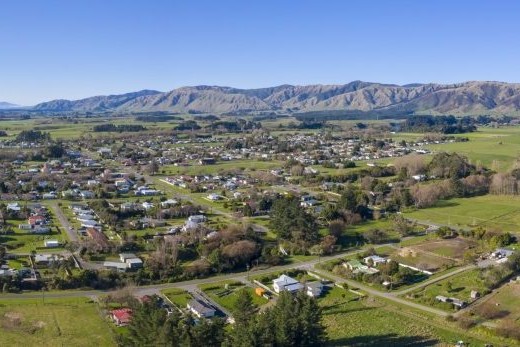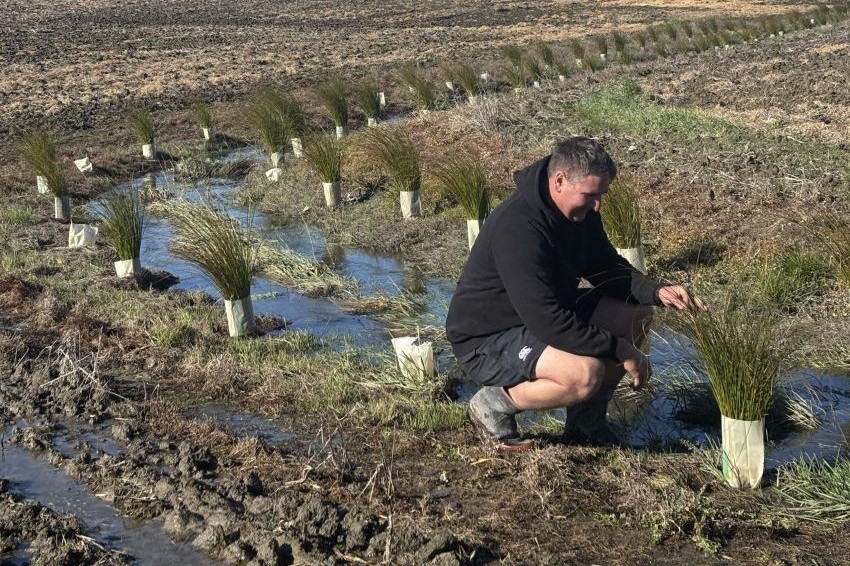Denis Hocking critiques claims questioning the effects of carbon emissions on climate change.
I have been allowed to move away from forestry to respond to some of what I see as the shortcomings in Jock Allison’s coverage of climate change in January. I do not claim to be an expert but have had an interest since the 1970s and have followed the politicisation of the debate with concern.
I agree that “a key role of a journalist is to provide information on an issue to readers and let them make their own decision…” but the words “reliable” and “thorough” should precede “information”.
I think Allison’s contribution fails on that score and does little to help readers subject to a confusing mishmash of varying quality, reliability and sensationalism. My main objections are: Allison bases much of his argument on the claim that satellite monitoring is a reliable way of measuring long-term lower atmosphere, (troposphere), temperature changes and it shows little warming over nearly 20 years.
In fact measuring surface and lower atmospheric temperature by satellite is fiendishly difficult with complex mathematical procedures required to convert the mass/mess of infrared and microwave radiation into temperatures of different bodies at different altitudes.
Satellites drift in their orbits and the technology has changed. The Huntsville interpretation Allison uses is their fifth version and some earlier ones showed significantly more warming.
The Huntsville data are not the only satellite interpretations. Californian group RSS, using the same satellites and data in their fourth-generation manipulation, has a trend line very close to, even slightly ahead of, the ground-based temperature record. They also claim it is more consistent with the balloon data than the current Huntsville version.
RSS’s third-generation interpretation suggested less warming than the contemporary Huntsville version. These satellites were originally developed to aid weather forecasting by measuring cloud temperatures. Why didn’t Allison see fit to mention these uncertainties?
Over 90% of the excess heat energy arriving on Earth is thought to be being absorbed by the oceans which show much slower changes in temperature. Scientists have long considered this as potentially the best indicator of a warming planet and since 2003 have distributed sophisticated, floating and diving “argo” buoys around the world.
Initially there were problems as they consistently gave lower temperatures than the old, ship-based systems. So the “evil” IPCC-aligned scientists adjusted the data.
Now there is a fairly long record from “argo” and, as was widely reported in Stuff papers on Saturday, January 12, scientists have discovered the oceans are warming faster than expected.
I also gather the scientists compared results for ocean heat content, (scientists don’t talk temperature, they talk heat energy) trends over the last 15 years from “argo”, satellite records, I presume RSS, and a stationary buoy system. They all agreed closely and they were also close to the IPCC’s CMIP-5 forecasts, which Allison treats with some disdain.
I agree with Allison on some issues. I was told from the beginning that water vapour is the main player among greenhouse gases, but also learnt of its other roles – transporting heat upwards, reflecting incoming visible light via clouds and snow, etc. Clouds are still the big complication in climate models – are they net positive or negative?
Water vapour doesn’t seem to be a solo player. About eight years ago a paper in “Science” ran several climate models with carbon dioxide excluded from the atmosphere. The result was an Earth that slowly froze over and entered a “snowball” state, something that may have actually happened about 700 million years ago.
Models are never quite reality, but it did suggest CO2 levels might be “the key control lever for global climate”. To discover the opposite effect, of a sudden surge in atmospheric CO2, which has happened, Google Paleocene Eocene Thermal Maximum, (PETM).
This leads on to another of Allison’s frequent claims about the many benefits of higher CO2 levels and the “huge scientific literature” about these benefits. The literature I have seen describes plant responses as very mixed with some showing sustained growth increases, many showing temporary increases and others showing no response.
It seems to be related to the availability of other nutrients especially N. We know that higher CO2 levels will acidify (lower the pH) of water bodies, especially the oceans. Last time this happened in the PETM there were major extinctions of carbonate-shelled animals.
And I do agree that far too many scientists, policy wonks and politicians jet around the world to climate change conferences.
I could go on. Can I just ask Allison to follow good scientific practise and not just cherry-pick to suit an existing belief. Climate change costs will be huge regardless of whether we work on mitigation or adaptation.




